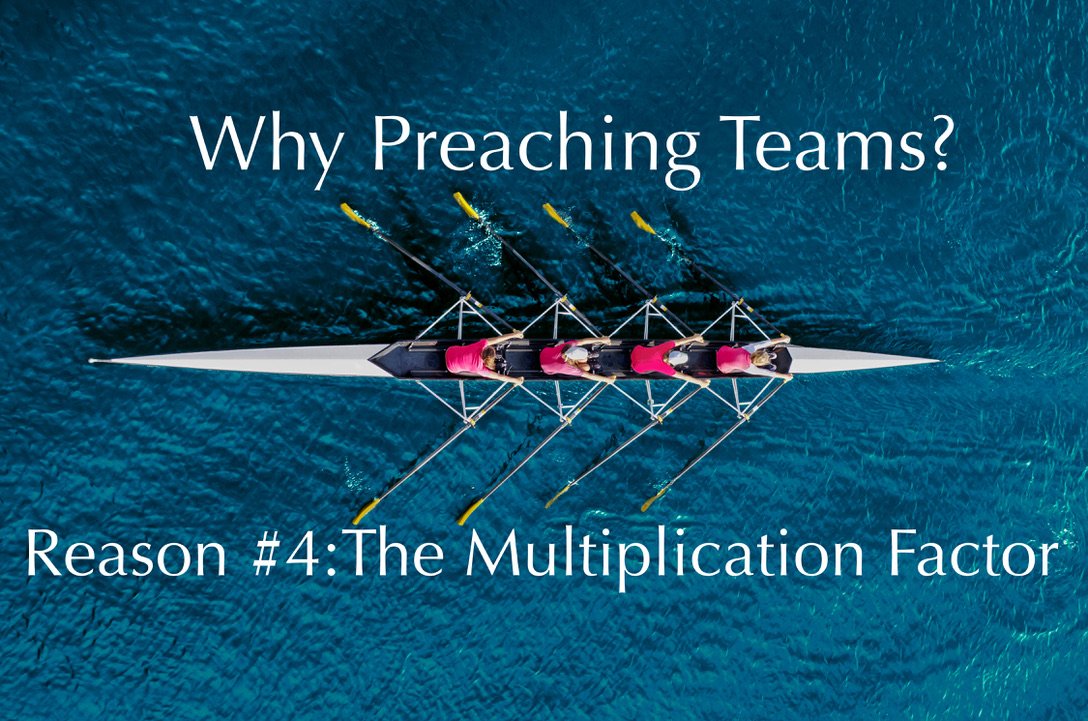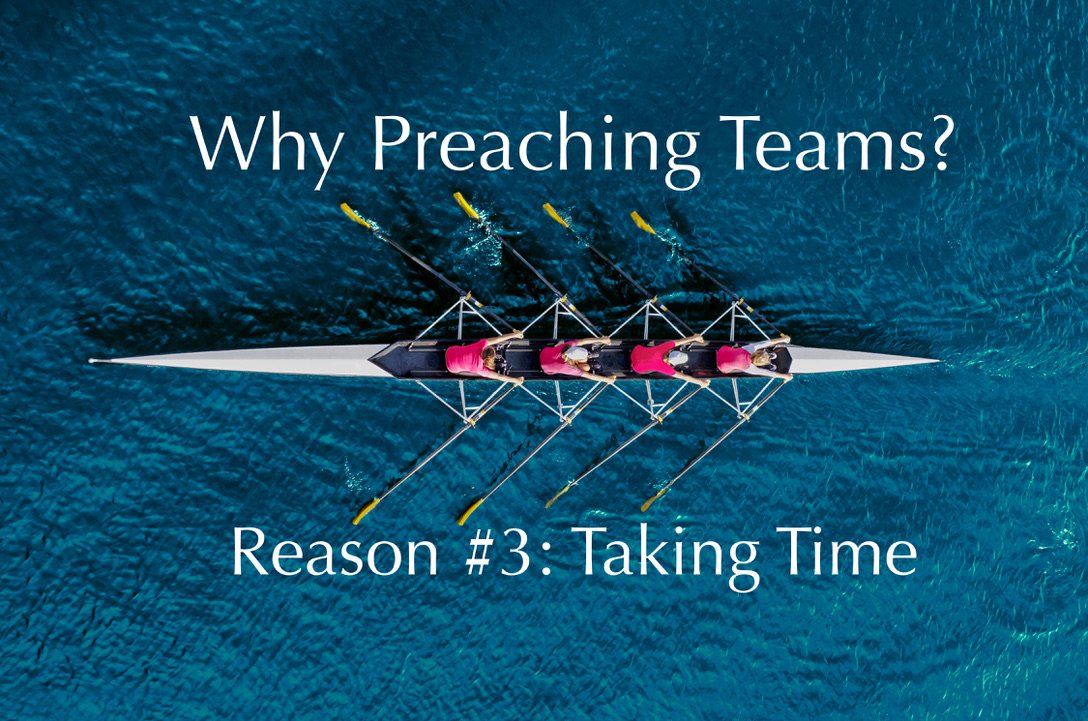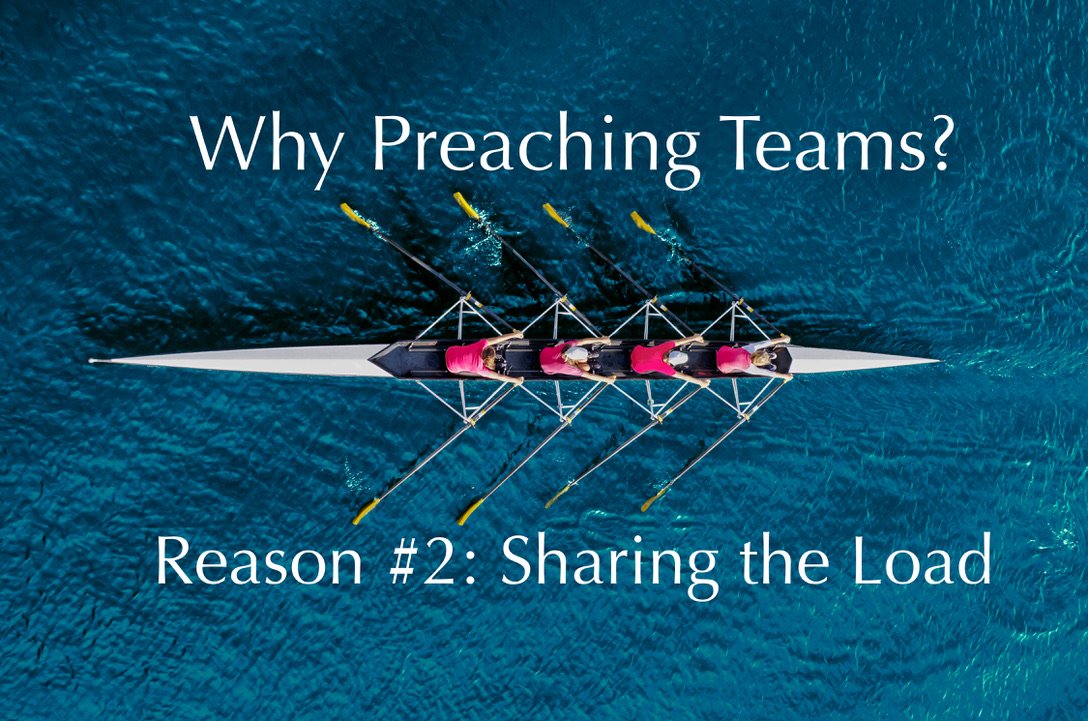If we work and preach in isolation, we may slowly grow as preachers over time. But on a healthy preaching team, iron sharpens iron and each preacher grows exponentially. The result is greater benefit for the people of God, and more effective preachers for the glory of God.
A preaching team made up of complementary strengths and personalities frees every preacher to preach from their own strengths with greatest benefit to the hearers.
When a group of preachers with differing personalities and styles feed a flock with a consistent gospel message, the focus naturally shifts from the preacher to the gospel. The messenger becomes secondary, and the message becomes primary. We decrease. Jesus increases.
If you are a preacher who wants to pursue kingdom multiplication in your ministry, the thing you most need to reproduce is other preachers. A preaching team provides a great way to do this.
To proclaim God’s word is to call God’s people to worship. This doesn’t mean simply that worship is the most important application point in the sermon. It means that worship fuels every application point in the sermon. The ultimate and highest goal of preaching is that hearers walk away from the sermon filled with wonder, awe, and joyful delight in God. When this happens, all application becomes spontaneous response rather than dutiful obedience or moralistic burden.
A preaching team frees the preacher to take the time necessary to deliver not just a good talk, but a message from God’s heart.
This is the prophetic function of preaching: naming our brokenness. Peeling back the layers of our denial, our deflection, and our self-deception to give a name to the self-destructive inclination of our hands, our heads, and our hearts. Why does this matter? Because only when our rebellion is named can we repent of it. And only when we repent can we experience redemption. And only through redemption can we enjoy restoration. Naming our brokenness is the at the trailhead to the only possible path to wholeness, healing, and grace.
The most obvious benefit for a preaching team is that it relieives the pressure on the senior pastor to carry the entire load of a church’s ministry of proclamation.
In the end, discipleship is more caught than taught. So, the important question for a disciple-making preacher is not just “what are my hearers learning from the content of my preaching?” but, “what are they learning from the example of my preaching?” How we preach is as important as what we preach. Here are three important ways our practice of preaching will shape the discipleship of our church.











Preaching as a team of servants who share ministry in a local church multiplies the impact of both ministry and message. The ministries of all shape the message of each.